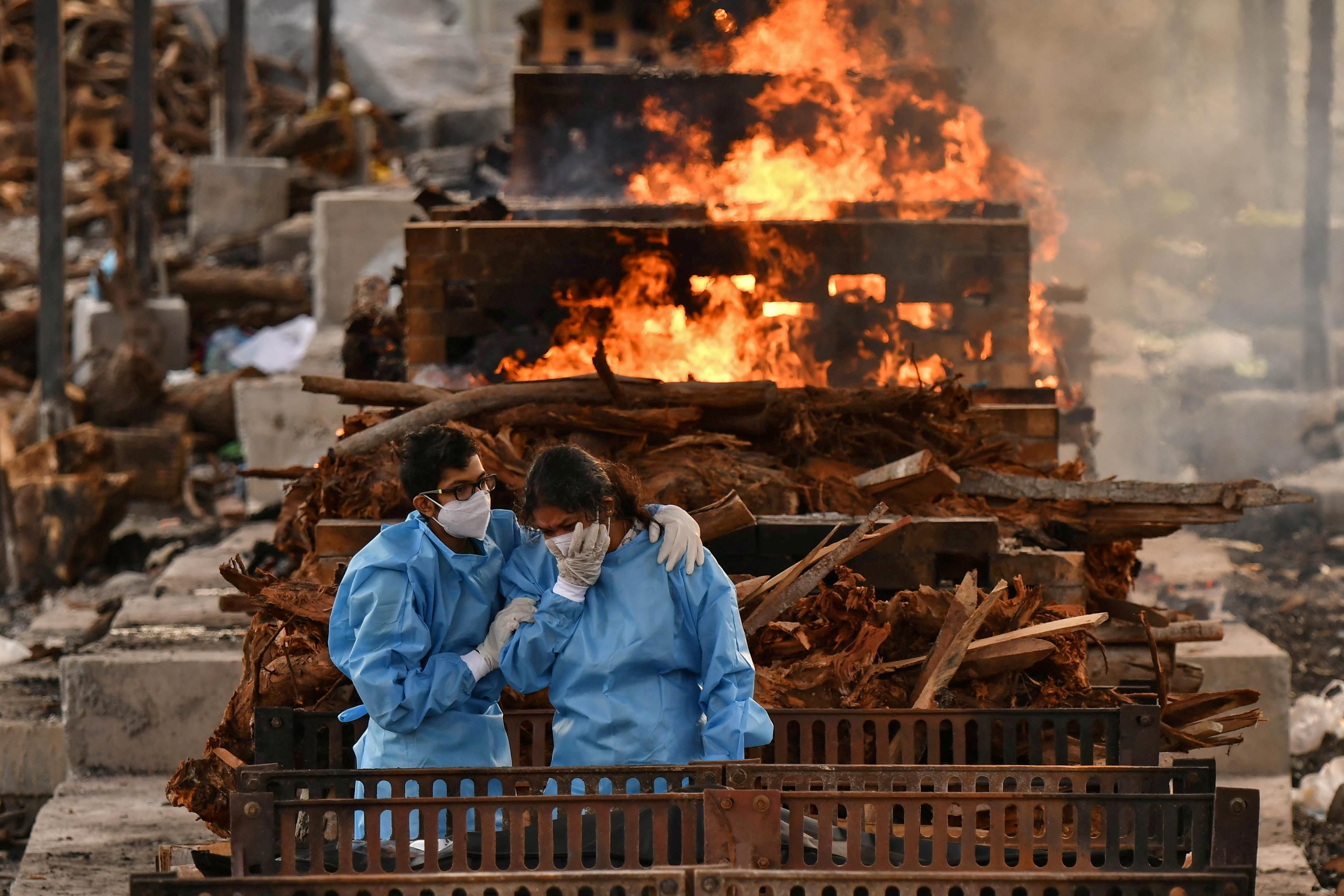News
May 13, 2021
4,000: For the second consecutive day, India reported more than 4,000 daily deaths from COVID. This comes as India is grappling with massive vaccine shortages and is now doling out the second AstraZeneca shot 16 weeks after the first one to make up for shortfalls.
1.25 million: About half of all US farmworkers — 1.25 million people — are undocumented migrants, mostly from Mexico. But many of these people, who are earning minimum wage with no benefits while keeping the American agricultural system running, are mostly struggling to feed their own families, according to a new Guardian investigation.
5 million: Colonial Pipeline, the largest oil pipeline in the US, reportedly paid $5 million in ransom to cyber criminals who took its system offline for close to a week, Bloomberg reports. This revelation comes after the company said it had no plans to pay the hackers and was working to restore its operations via a backup system.
213 million: Patrick Soon-Shiong, a South African-born Asian American, has pledged $213 million to help fast-track vaccine production in South Africa. The entire continent of Africa is currently relying on vaccine imports, and only 2 percent of all doses administered globally have been in African countries.More For You
Mastercard Economic Institute's Outlook 2026 explores the forces redefining global business. Tariffs, technology, and transformation define an adaptive economy for the year ahead. Expect moderate growth amid easing inflation, evolving fiscal policies, and rapid AI adoption, driving productivity. Digital transformation for SMEs and shifts in trade and consumer behavior will shape strategies worldwide. Stay ahead with insights to help navigate complexity and seize emerging opportunities. Learn more here.
Most Popular
- YouTube
Despite a ceasefire in Gaza, Israel is still not letting foreign journalists in to independently verify what’s happening on the ground, CNN’s Clarissa Ward tells Ian Bremmer on GZERO World.
- YouTube
On Ask Ian, Ian Bremmer breaks down the steady escalation of US pressure on Venezuela and why direct military action is now a real possibility.
US President Donald Trump arrives to announce reciprocal tariffs against US trading partners in the Rose Garden of the White House in Washington, DC, USA, on April 2, 2025.
POOL via CNP/INSTARimages.com
From civil conflicts to trade wars to the rise of new technologies, GZERO runs through the stories that have shaped this year in geopolitics.
© 2025 GZERO Media. All Rights Reserved | A Eurasia Group media company.
